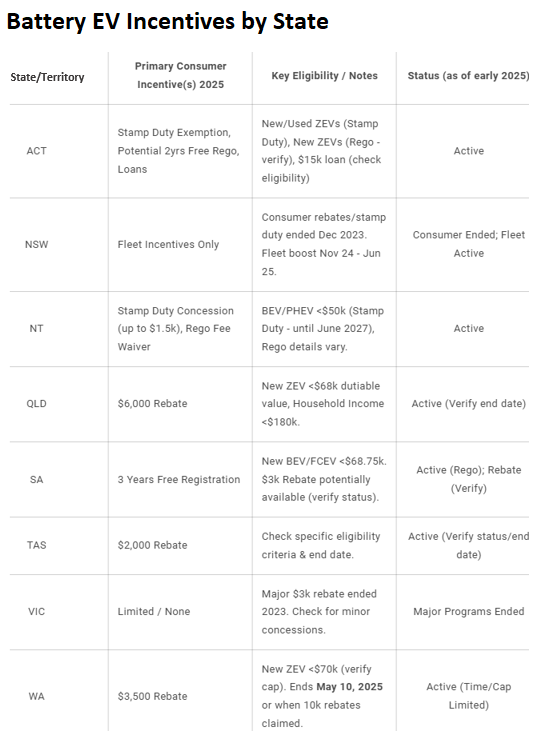I am philosophically opposed to taxpayers providing subsidies for private car transportation.
Most of these subsidies flow to higher-income earners. Therefore, these subsidies serve as a prime example of the reverse Robin Hood phenomenon, where the rich benefit at the expense of the poor.
Electric vehicle (EV) subsidies are exceptionally costly and egregious.
The Fringe Benefits Tax (FBT) exemption for battery EVs and plug-in hybrid electric vehicles (PHEVs) costs the federal government more than $550 million in lost tax income annually. However, the FBT exemptions for PHEVs expired on April 1, 2025. However, the cost of the policy will rise if more Australians adopt battery EVs.
By utilising the FBT exemption, someone leasing a $60,000 car could save more than $12,000 per year if they purchased a battery EV instead of an internal combustion engine (ICE) car via a novated lease.
Battery EVs are also exempt from paying road user fees via the fuel excise rate of 50.8 cents per litre. This exemption from road user charges has diminished the federal budget’s tax base.
Battery EVs also qualify for a higher tax threshold for luxury cars than ICE vehicles.
Finally, certain states and territories offer direct battery EV subsidies, stamp duty exemptions, and discounts on car registration:

In 2023, the Productivity Commission (PC) warned that the FBT exemption for EVs was one of the most ineffective and expensive ways to reduce vehicle emissions.
The PC also argued that the FBT exemption was inequitable because wealthy households were disproportionately more likely to purchase EVs, thereby eroding the integrity of the income tax system.
Last week, John Kehoe from The AFR reported that the PC is preparing to urge the Albanese government to phase out tax breaks for electric vehicles.
The PC estimates that the exemption of battery EVs from FBT is the most expensive form of carbon abatement, costing between $987 and $20,084 per tonne.

“Exempting low and zero-emission cars from FBT potentially saves buyers as much as $30,000, excluding other state government subsidies”, noted Kehoe.
The bottom line is that Australia’s governments should stop wasting taxpayers’ money and leave vehicle purchasing decisions to consumer preferences and the market.
There are far better ways to spend scarce taxpayer money than subsidising private car purchases.

